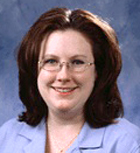
Last year’s tragic and deadly meningitis outbreak left many confused about the differences between compounding pharmacies versus others and what compounded medicine is, as well as the way each are regulated. The information below aims to provide clarity about the terms and their respective practices.
What is compounded medication?
Before mass production of medications became widespread, compounding was a routine activity of pharmacists. Compounded medications are prescriptions that are written by a physician or other legally authorized prescriber and prepared for an individual patient. They are not commercially available; rather, they are prepared by a pharmacist to meet an individual’s unique needs as determined by the prescriber.
Some states define compounding as making a “limited quantity” drug, product or device as prescribed by a doctor, or for research, chemical analysis or teaching. Compounding does not include preparing a drug “in a dosage or form that is commonly available from a manufacturer” or preparing a drug that has been pulled from the market for safety reasons, the law states.
Compounded medications are necessary for a variety of reasons. Examples include:
• Adjusting dose or route of administration,
• Allergies to dyes, preservatives and other inactive ingredients,
• Medications not available or discontinued by commercial manufacturers.
What is a compounding pharmacy?
The New England Compounding Center (NECC) in Framingham, Massachusetts, which was responsible for the meningitis outbreak just a couple of months ago, is an example of a compounding pharmacy. Compounding pharmacies traditionally alter or recombine drugs to meet an individual patient’s specific need, but in recent decades, some compounders such as NECC have developed large operations that have not been subject to the same standards as traditional drug manufacturers, and the U.S. Food and Drug Administration and others are urging stricter oversight.
Compounding pharmacies are designed to make a single prescription at a time for an individual patient, not hundreds of vials of a substance to be shipped all over the country.
However, mass production in compounding pharmacies can be a major threat; without proper equipment, procedures, and quality testing, the pharmacy may not have the tight quality control needed for mass production. For example, the contaminated injectable steroid that caused the meningitis outbreak was shipped to 75 medical practices and clinics in 23 states, and administered to 13,000 patients.
What is an institutional pharmacy?
An institutional pharmacy, like Remedi SeniorCare®, is one that provides a range of services to residents of nursing homes, hospitals, or hospice environments that do not have an on-site pharmacy. Without an on-site pharmacy, most long-term care facilities depend on institutional pharmacies to provide them with the necessary pharmacy products and services.
In addition to providing pharmaceuticals, institutional pharmacies provide consulting services, which include monitoring the control, distribution, and administration of drugs and assisting in compliance with applicable regulations. The pharmacist also plays a role as medication therapy experts. Institutional pharmacists take responsibility for their patients’ medication-related needs; ensure that their patients’ medications are the most appropriate, most effective, safest possible, and are used correctly; and identify, resolve, and prevent medication-related problems that may interfere with goals of therapy. Services include special 24-hour delivery and on-call services 365 days a year.
As one of the country’s leading long-term care pharmacies, Remedi SeniorCare® provides compounded medications to its customers such as topical products, solutions, suspensions, intravenous drugs, and total parenteral nutrition (TPN), in addition to non-compounded medications. Compounded products are only made upon the request of the prescriber to meet the needs of an individual patient. Remedi is not, however, a “compounding pharmacy” such as the New England Compounding Center (NECC) in Framingham, Massachusetts.
Jennifer L. Hardesty, Pharm.D., FASCP, is Clinical Services Manager at Remedi SeniorCare.




